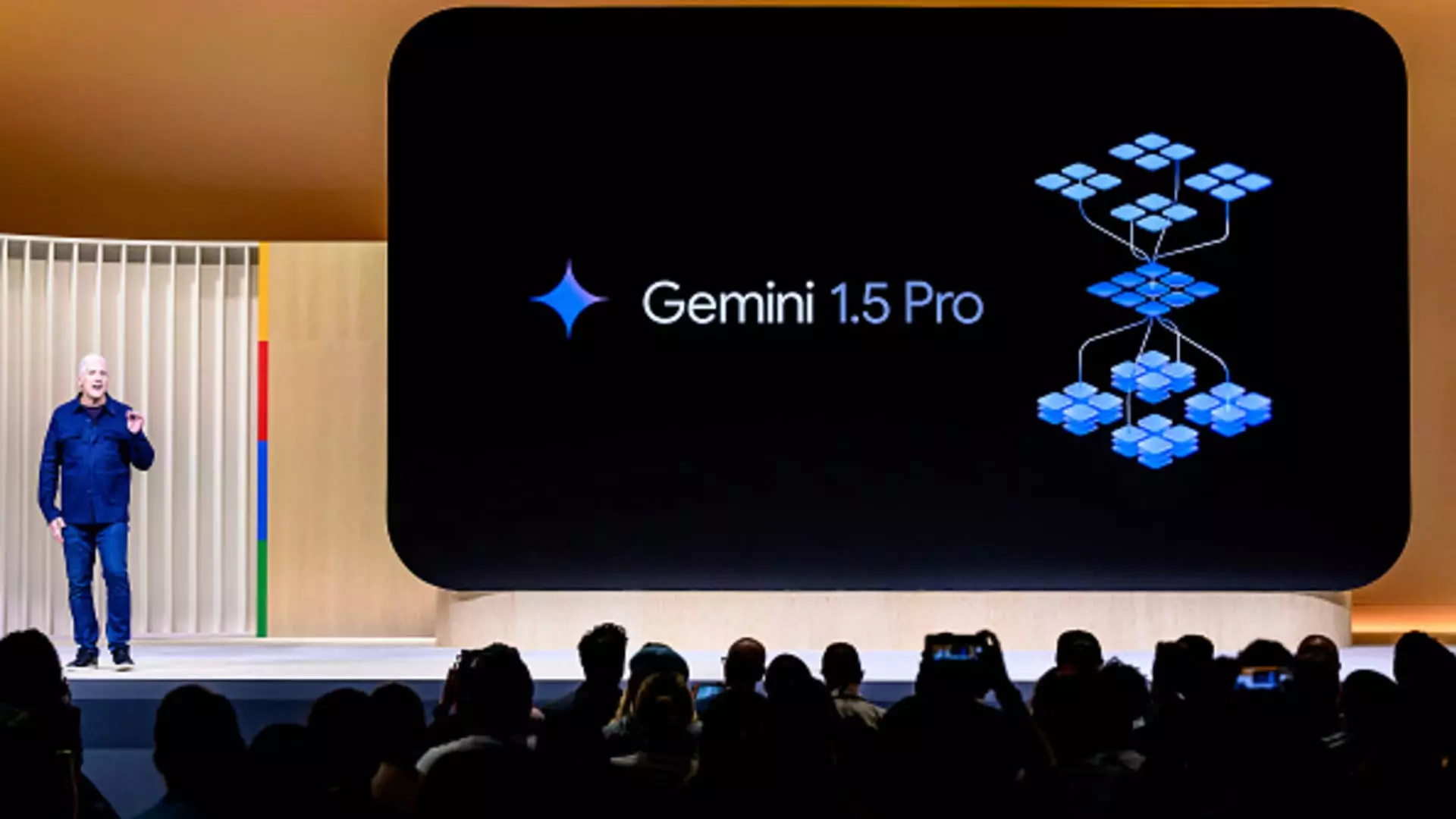During Google’s Pixel phone launch event, a product director named David Citron demonstrated the mobile capabilities of the company’s new AI assistant, Gemini. The live demo took an unexpected turn when Citron’s attempt to check his calendar for a specific event failed, resulting in an error message. After two unsuccessful tries and a phone swap, the third attempt was successful, showcasing the potential of Google’s AI features.
The failed demo highlighted Google’s advantage in the field of artificial intelligence as the company continues to integrate AI features into smartphone software. While competitors are also focusing on AI advancements, Google’s Gemini features are already shipping for testing, setting the company apart from its rivals. Apple, for example, presented a prerecorded video to showcase its assistant Siri’s upcoming capabilities, signaling that some critical improvements are still in the testing phase.
Google’s live demos mark a significant shift in its approach compared to previous attempts to showcase AI capabilities. The company’s commitment to delivering real products to consumers sets it apart from competitors like Apple, which also aims to integrate AI into its operating systems. With the smartphone market leaning towards AI-capable devices, the pressure on companies like Apple to keep up with Google’s advancements is mounting.
Google’s 100-minute presentation introduced several unique capabilities of its next-generation assistant, Gemini Live. The assistant was demonstrated to perform tasks naturally, such as adding items to shopping lists and checking calendars. Google’s emphasis on deep research capabilities showcases the potential for Gemini to become a valuable tool for users seeking efficient AI-powered assistance.
Google executives attributed the success of their AI features to decades of investment in the field, highlighting their integrated AI strategy. The development of multimodal AI, a technical advancement not planned by Apple, demonstrates Google’s commitment to pushing the boundaries of AI capabilities. Additionally, Google’s focus on simplicity in AI processing for devices indicates a shift towards running AI functions directly on device chips, rather than relying on external data centers.
The rivalry between Google and Apple in AI integration is evident in their respective approaches to showcasing new features. While Google emphasizes live demos and the availability of AI features for testing, Apple’s strategy involves scripted testing and selective previews for developers. The competition between the two tech giants is likely to intensify as AI-capable smartphones become more prevalent in the market.
Overall, Google’s showcase of AI capabilities with the Gemini assistant at the Pixel phone launch event highlights the company’s commitment to innovation and advancement in the field of artificial intelligence. By demonstrating real products and live demos, Google sets a high standard for AI integration in smartphones, pushing competitors to keep up with the evolving technology landscape.


Leave a Reply